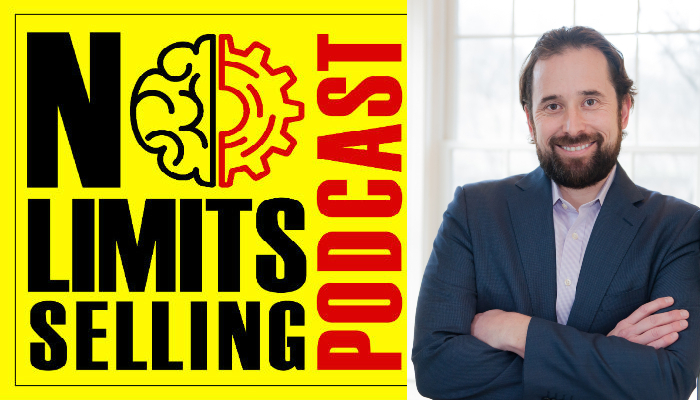How To Maximize Your Profits Through Auctions
On Episode 203 of The No Limits Selling Podcast, we have Charles Billig, a Real Estate Professional and Auctioneer. Fourth generation auctioneer, joining A. J. Billig & Co., Auctioneers full-time in 2006. Graduate of the University of Baltimore School of Law; graduate of Elon University, earning a Bachelor of Science Degree in Business Management; licensed Maryland Associate Broker; graduate of Missouri Auction School; member of Greater Baltimore Board of Realtors, Maryland Association of Realtors, National Association of Realtors. In this episode, Charles tells us how to maximize your profits through auctions.
Charles Billig is a highly motivated person with an intuitive feel for local markets and trends. Well-trained in property analysis, marketing and sales techniques, Charles has steadily developed the skills and knowledge of a successful real estate auctioneer.

Contact Chuck:
[EDITOR’S NOTE: This podcast is sponsored by No Limits Selling. It is a fun, fast-paced podcast that delivers hard-fought business advice that you can implement today to improve your sales and performance]
Interested In Our Real Estate Coaching Services? Explore Our Website: Link
Feeling Not Well Today? You Can Use Our Mindset Boosters App To amp Up Your Mood: Link
Find us on Social Media:
LinkedIn | Facebook community | Instagram
Like what do you listen to? Subscribe to our podcast!
Ready to become fearless? We can help you become fearless in 60 days so you accomplish more in your career Schedule A 15 min Call with Umar
Summary
Introduction and Background
The podcast begins with an introduction of Charles Billig, a fourth-generation auctioneer who joined A. J. Billig & Co., Auctioneers full-time in 2006. Charles is a graduate of the University of Baltimore School of Law and Elon University, where he earned a Bachelor of Science Degree in Business Management. He is a licensed Maryland Associate Broker and a graduate of Missouri Auction School. Charles is also a member of the Greater Baltimore Board of Realtors, the Maryland Association of Realtors, and the National Association of Realtors.
The Auction Business
Charles discusses the auction business, explaining that it is a family tradition that has been passed down through four generations. He shares his experiences growing up in the business and how he learned the ropes from his father and grandfather. Charles also talks about the importance of trust in the auction business and how to maximize your profits through it, and how his family has built a reputation for honesty and integrity over the years.
Real Estate and Auctioneering
In this section, Charles delves into the intersection of real estate and auctioneering. He explains how the two fields are intertwined and how his background in law and business management has helped him navigate the complexities of both industries. Charles also discusses the benefits of selling real estate at auction, including speed, transparency, and the potential for higher sale prices. This is one of the most useful ways to maximize your profits through auction.
Challenges and Opportunities
Charles talks about the challenges and opportunities in the auction and real estate industries, and how you can maximize your profits through these challenges. He discusses the impact of technology on the auction business, including online bidding and digital marketing. Charles also shares his thoughts on the future of the auction industry and how he is preparing for changes in the market.
Conclusion
In this insightful podcast, Charles Billig, a seasoned Real Estate Professional, and Auctioneer, shares his journey in the auction business, a family tradition that spans four generations. He delves into the intricacies of the auction and real estate industries, shares tips on how you can maximize your profits through auction, highlighting the importance of trust, education, and practical experience.
Charles also discusses the impact of technology on the auction business and offers valuable advice for aspiring auctioneers. His unique perspective, shaped by his background in law and business management, provides a comprehensive understanding of the auction industry's challenges and opportunities. This podcast is a valuable resource for anyone interested in the dynamic world of auctioneering and real estate.
Questions & Answers
Who is Charles Billig?
What is Charles Billig's background in auctioneering and real estate?
How has technology impacted the auction business according to Charles Billig?
What advice does Charles Billig offer to aspiring auctioneers?
What are the benefits of selling real estate at auction as discussed by Charles Billig?
What is Charles Billig's perspective on the future of the auction industry?
Don’t miss this opportunity to transform your real estate career with one-on-one coaching. As an experienced real estate coach, I, Umar Hameed, am dedicated to helping you unlock your full potential and achieve your real estate goals. To learn more about who am I and my clients ↓
If you’re ready to take the next step, book an appointment with me today and begin your journey toward success in the real estate industry.
